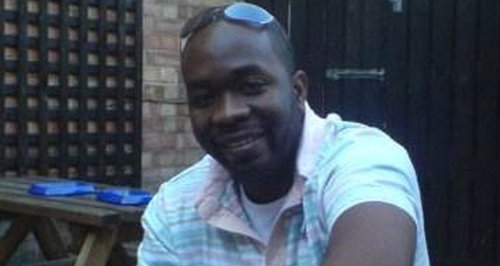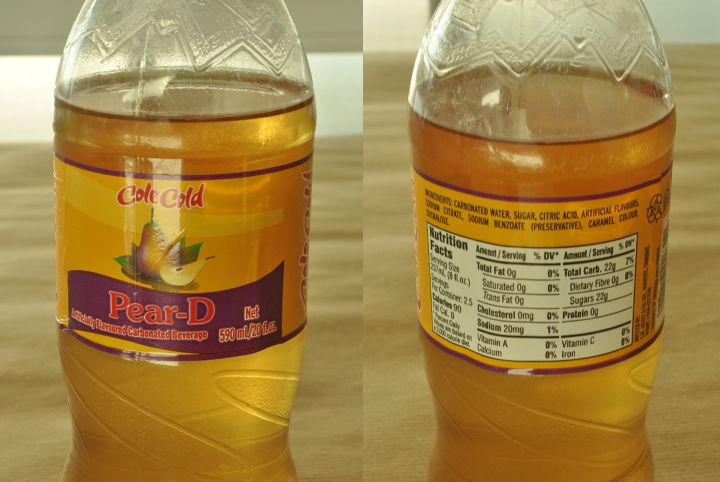On Air Now
The EE Official Big Top 40 from Global 4pm - 7pm
28 October 2014, 16:28 | Updated: 30 March 2016, 13:50

A Hampshire Royal Navy veteran working at a food import company died after drinking a mouthful from a pear drink shipped from the Caribbean which contained cocaine in a concentration at least 20 times the lethal level, an inquest has heard.
Joromie Lewis, 33, of Kings Road, Gosport became ill after trying the drink which he spat out because of its bitter taste.
Mr Lewis consumed the drink in Southampton on December 5 last year and died that night at Southampton General Hospital.
The inquest jury heard that tests showed that the drink, called Pear D - imported by his employer Kelly's Shipping UK Ltd on behalf of a client - contained an ``overwhelmingly high'' concentration of cocaine.
Graham Short, coroner for Central Hampshire, said: ``Joromie worked for a company which imported food and drink from the Caribbean and distributed them in this country. He was a driver and general assistant working mainly on a part-time basis.
``On December 5 2013, Joromie drank from a bottle at his employer's garage where he was unpacking a delivery of drinks. The bottle was labelled Pear D, a form of pear cordial not normally available in this country.
``He took only one mouthful and he felt it tasted bitter and spat it out.
``After this he started to feel unwell and he was taken to hospital by his friends. He died later the same day at Southampton General Hospital.
``Tests of the contents of the bottle showed it had a very high concentration of the drug cocaine in solution.''
Basil Purdue, a Home Office pathologist, said he had been informed that Mr Lewis consumed the drink at the home of his employer and fell ill immediately.
He said the bottle was part of a consignment of 90 cases imported from the island of St Vincent but the bottle had tested for dissolved cocaine - a smuggling method for the drug.
He said Mr Lewis was a healthy man whose only medical issue had been a problem with his back which had led to him receiving a medical discharge from the Navy in 2012.
Dr Purdue said: ``Joromie had inadvertently taken a swig and no more than that from one of the bottles.''
He said Mr Lewis was obviously ill as he began to shake and collapse and was rushed to hospital by his friends.
Stating that the cause of death was cocaine intoxication, Dr Purdue said toxicology tests showed that Mr Lewis had a ``very high'' cocaine level of 21.3mg per litre of blood, with a fatal level being as low as 1mg.
The drink would have contained 1g of cocaine in 3ml of liquid.
He compared the level to that of a drug smuggler who died after four cocaine packages burst in his stomach, leaving him with a level of 4mg/l.
Dr Purdue said that as a ``naive user'' - someone who was not a cocaine user - the drug would have had a greater effect, and added: ``We are dealing with an overwhelming overdose of the drug.''
He added that one of Mr Lewis's colleagues put some of the liquid on his tongue and it caused it to go numb for three hours.
Juanette Allen, company secretary of Kelly's Shipping UK Ltd, said the firm imported drinks from the Caribbean at the request of customers.
She said: ``In this case we didn't source the drink, we just facilitated the process of bringing it from St Vincent to the UK.''
She explained that the van-load of drinks arrived at Portsmouth docks on November 24 and, once duties had been paid, Mr Lewis collected it two days later and took it to the garage at Ms Allen's home in Southampton where the company is based.
She said the company had not ordered any Pear D drink and she had not come across the brand before.
She told the hearing at Winchester Coroner's Court that the client paid #750 for the consignment.
Ms Allen said: ``I was familiar with a drink called Pear Drops and I assumed it was linked to this drink.''
She said Mr Lewis arrived at her home at about 6.30pm with a colleague, Carlos Deabreu, with a van of items collected for export.
She said he picked up a bottle to drink, which he was allowed to do, and she saw him in the kitchen drinking a mouthful from it.
She said: ``When he had a sip of it he said it didn't taste right. I am not sure if he swallowed because he went out to the sink, I do not know how much he swallowed.
``He was trying to get it all out, trying to make himself sick. I asked him when he said it didn't taste right, I asked him if he broke the seal on the bottle, he said yes.''
She said he complained of the bitter taste from the drink which he pointed out was not carbonated as it should have been and asked for some sugar to get rid of the taste.
She told the hearing Mr Lewis had said he wanted to get the contents of the bottle tested at a hospital and he left with her partner, Phillon Kelly, and Mr Deabreu before he began showing physical problems.
Ms Allen said she heard Mr Lewis say to Mr Kelly: ``Do not let those people use you.''
She said: ``He was probably thinking this bottle that he had a drink from probably had come from the customer and they knew exactly what was in the bottle and the company was using the company to get them.''
She added: ``Probably we were a bit naive, it's not something we thought someone would try to do to us.
``Since this incident we have not imported any drinks, not for the customer, not for ourselves. We have taken the decision that any drink we have to source ourselves.''
Ms Allen said she had known Mr Lewis, who was paid £10 an hour for his work, since they had both lived in St Vincent and they had joined the Navy at the same time.

Carole Willis of Hampshire Scientific Services said an examination showed the bottle contained 189g of cocaine.
Detective Sergeant Glyn White, of Hampshire Police, said Mr Lewis was taken to Royal South Hants Hospital by Mr Deabreu but because it did not have an accident and emergency department he was taken by ambulance to Southampton General Hospital.
He said: ``Carlos steps around the vehicle to open the door for Joromie who by this stage already appears to be beginning to fit. He's not able to exit the vehicle and collapses.''
Det Sgt White said that once the danger of the drink had been established, the Food Standards Agency issued an alert to local authorities to check for bottles which might have reached shops in the UK.
He said the rest of the consignment was not recovered, including other bottles of Pear D imported at the same time, and he believed that someone slipped the contaminated bottle into the crates being exported.
He said the customer, a Samantha McDadi, was investigated but not traced, with her telephone number and email address no longer in use, and he added that he did not believe this was a genuine identity.
Det Sgt White said it was estimated that the street value of the cocaine in the bottle was #50,000 but he believed there might have been other bottles which had not been found.
He said: ``If that was the only one, it makes the entire incident more tragic and unlikely. By default, maybe there were others.
``I think it's an extremely rare set of circumstances that have come together.
``We have no current suspects of residents living in Hampshire, I cannot say anything more about potential persons of interest to other law enforcement agencies.
``As to that particular importation, there are no direct ongoing inquiries.''
The coroner, Mr Short told the jury: ``There was nothing that could have been done even if the true nature of what he had drunk had been known.''
The jury of five men and five women returned a verdict that Mr Lewis died as a result of an accident.
Mr Short said: ``This was a tragedy in the real sense of that word because this was a man who was working to support his family and innocently consumed what he thought was a soft drink.
``In this particular incident I have considered whether I should make a report to prevent further instances of this kind which I have the power under the Coroner's Rules.
``I do believe that there is no single agency or entity which would be in a position to prevent a rare occurrence of this kind and it was a very unfortunate set of coincidences that this occurred and it's difficult to believe any action taken would prevent a repetition so I am not going to make any recommendations in this case.''
A Hampshire police spokesman said previously that two men and a woman, all aged 37 and from Southampton, as well as two men from London, aged 33 and 39, had been arrested but were all released from bail in April with no further action to be taken against them.
Mr Lewis's widow Jayrusha Lewis said of her husband in a statement released after his death: ``He was a devoted family-oriented man with a selfless attitude to help others, and always knew the right words and advice to give.
``His exemplary conduct and actions touched the lives and hearts of many. He was a member of the Bridgemary Family Church.''
In May 2009, a 63-year-old taxi driver, Lascell Malcolm, from Haringey, north London, died after he drank from a bottle of Bounty Rum which had been used to smuggle cocaine into the country.
The father of two, who had been given the bottle as a present in lieu of payment from an unknowing friend, died after drinking from the bottle that had been used to smuggle 246g (8.7 oz) of pure cocaine dissolved into the alcohol.
Just a teaspoon of the liquid could be fatal.
Drug smuggler Martin Newman, of Romford in Essex, aged 50 at the time of his conviction in 2010, was convicted of Mr Malcolm's manslaughter at Croydon Crown Court and sentenced to 20 years to run concurrently with 15 years for the importation of cocaine.
Later in 2010, scientists from the universities of Bradford and Leeds developed a portable laser light, called a Raman, which can detect the presence of cocaine through glass and it was hoped it could help prevent the drug being smuggled into the country in this manner.
Customs officials otherwise have to open bottles to test for cocaine.